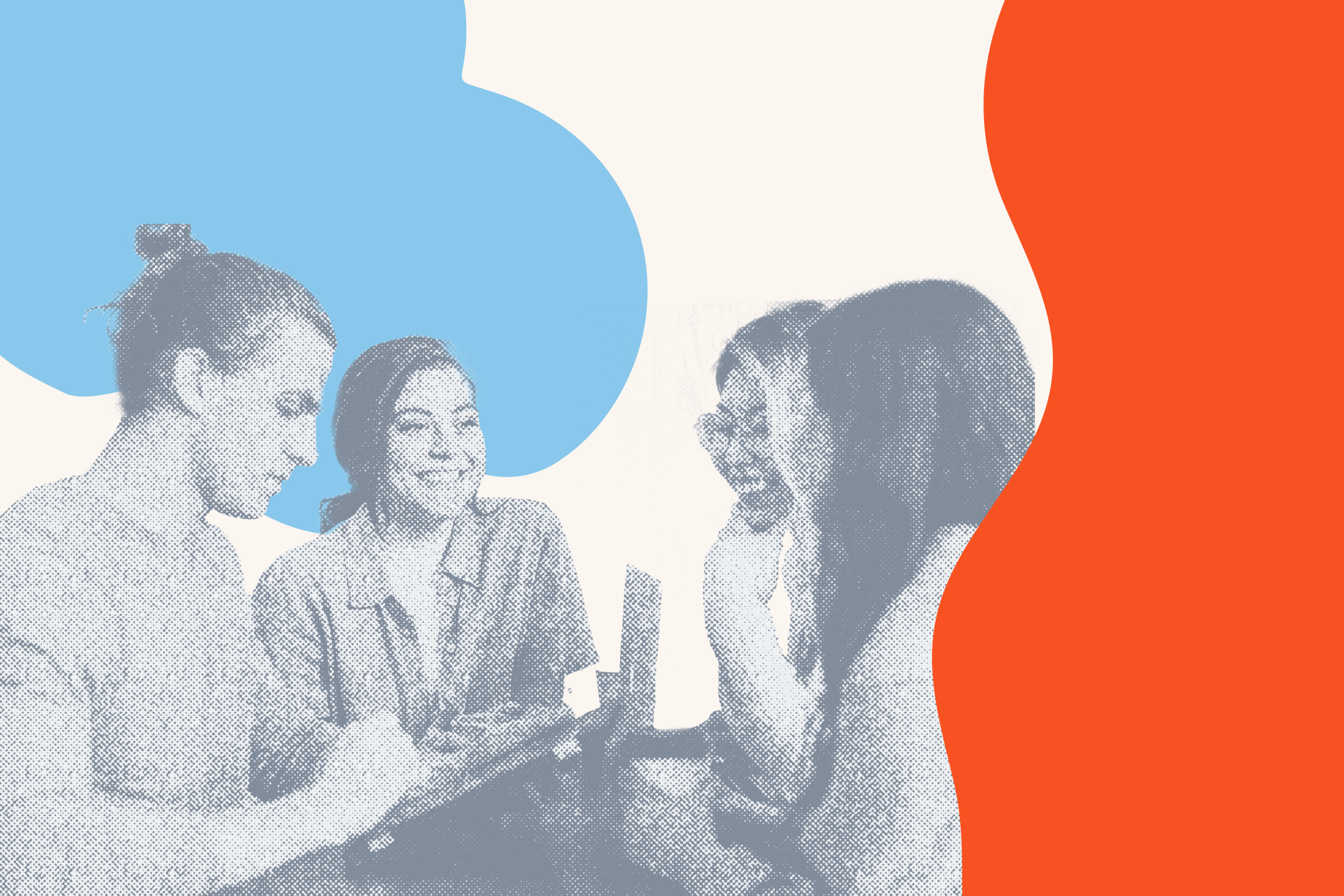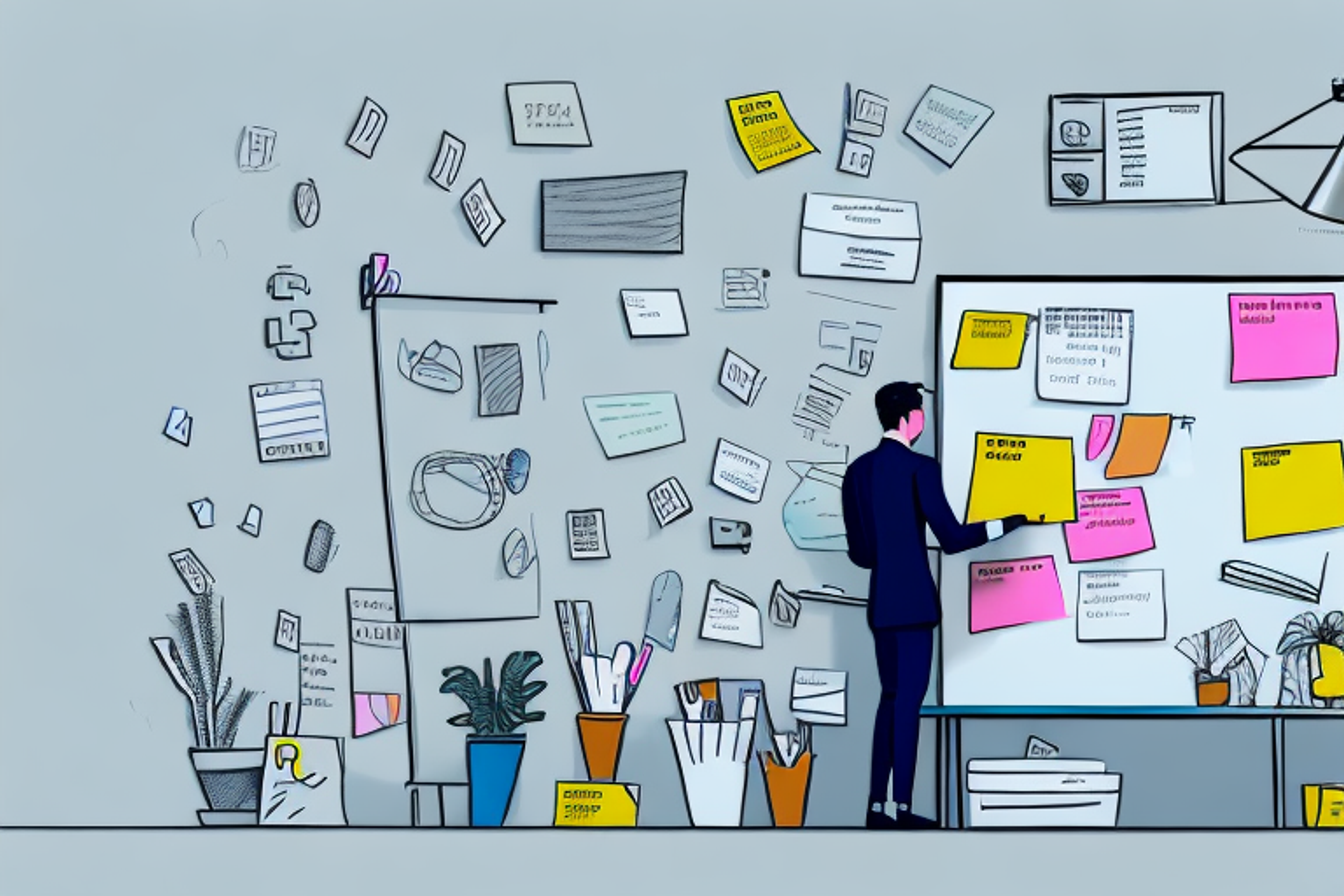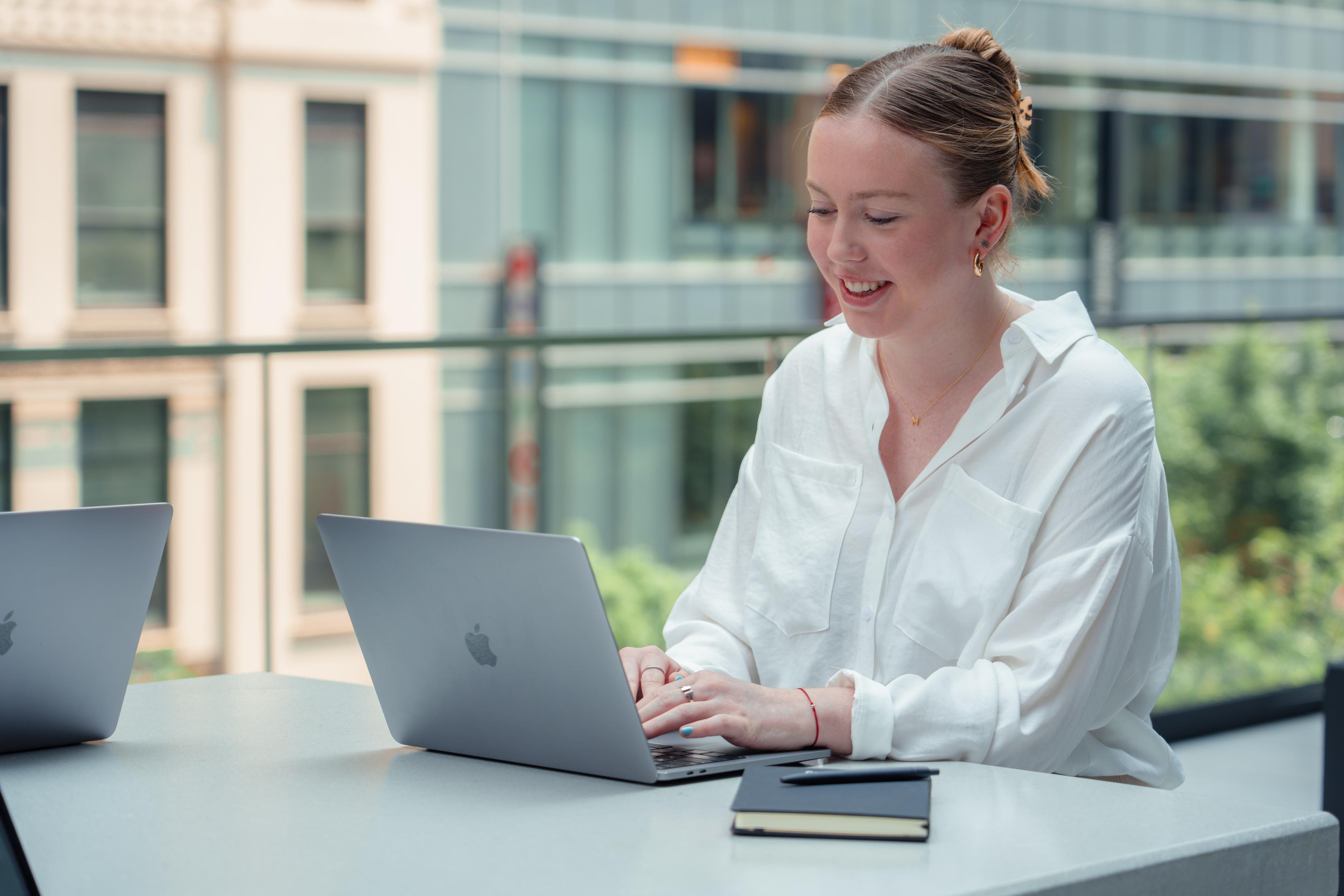EY Behavioral Interview Questions: How to Prepare and Respond
Are you preparing for a behavioral interview with EY? This article provides tips on how to prepare and respond to common EY behavioral interview questions.
Posted April 2, 2025

Table of Contents
Landing a job at EY takes more than just a strong resume. Their behavioral interviews test how well you communicate, problem-solve, and fit into the company culture. If you don’t prepare, you might get caught off guard.
This guide will help you understand the EY interview process, prepare for common EY interview questions, and build confidence for your big day. Let’s do this!
What to Expect in the EY Behavioral Interview
Apart from the common questions like “Why do you want to join/work at EY” or “Tell me about yourself,” you will also be asked about your audit process, solving a tax case study, and how you usually manage challenges at work.
There will be a case where you will be advised to thoroughly prepare and demonstrate a robust understanding of valuation methodologies, along with fundamental MS Office skills. Focus exclusively on the formal theories and core concepts.
EY’s behavioral interviews focus on how you think, work in a team, and handle challenges. The goal is to see if you align with EY’s values and have the transferable skills needed for the job.
Some interviews are in person, while others are done through a video interview or a phone interview, depending on the role and location. For consulting roles, you might also face a case study or group exercise.
EY Interview Format
Senior Consultant Interview
- Round 1: Coffee Chat – An informal conversation with an EY consultant.
- Round 2: Online Test – A video interview where you record answers to questions.
- Round 3: Final Interviews – Four interviews (30 minutes each). Two focus on behavioral questions, one is a case study, and the last is a group exercise.
Associate Consultant Interview
- Phone Interview – Discussion with the hiring manager covering your experience, skills, and relevance to the role.
- HireVue Video Interview – A self-recorded video interview with pre-set questions.
Business Consultant Interview
- Behavioral Interview – Focuses on your resume, work approach, and culture fit.
- Case Interview – Typically a market entry case to assess critical thinking and consulting skills.
General EY Interview Process
- Application Submission – Resume and cover letter submitted online.
- Initial Screening – Recruiters review applications. Some may get a phone interview.
- Online Assessment – Situational judgment or numerical reasoning tests.
- First Interview – Behavioral interview, often using the STAR method.
- Second Interview – More technical questions, case studies, or a group exercise.
- Final Interview – A conversation with senior leadership to assess team fit and leadership qualities.
- Offer and Background Check – If successful, you’ll receive an offer followed by a background check.
- Onboarding – New hires go through training and company orientation.
EY Behavioral Interview Questions
- What motivates you every morning to work at EY?
- Previous experiences and why I was interested in the role.
- Difficult situations I had faced in my previous jobs.
- Tell me about the time you disagreed with a boss.
- What would you do if you failed to reach your required numbers?
- Tell us how your skills fit for this role.
- Explain the projects you previously worked on.
- Tell us about a time you helped resolve conflict in the workplace, how did you go about it.
- What is your business development plan and execution plan?
- Mention a time where you had to work in a group and you disagreed with a coworker.
EY Behavioral Interview Questions (With Sample Answers)
Overcoming Challenges
Question: Tell me about a time you had to overcome a challenge.
Sample Answer:
"I was leading a project where we faced unexpected budget cuts. Instead of reducing the project scope, I identified areas where we could optimize resources. I collaborated with vendors to renegotiate contracts and streamlined internal processes, ultimately delivering the project on time with a 15% cost reduction."
Go-to-Market Strategy Question
Question: How would you structure your approach to solve a go-to-market question?
Sample Answer:
"I would first analyze the target market, including segmentation and competitive landscape. Next, I would define the value proposition and ensure it aligns with customer needs. I would then develop a marketing and distribution strategy, considering partnerships, pricing, and promotional channels. Lastly, I would measure success through KPIs like customer acquisition cost, conversion rates, and market penetration."
Role Alignment & Skills Fit
Question: Tell us how your skills fit for this role.
Sample Answer:
"My background in financial analysis and risk management aligns well with this role. At my previous firm, I managed financial modeling projects, improving efficiency by 20%. Additionally, my problem-solving skills and experience with client consulting make me well-suited for the fast-paced environment at EY."
AI Case Study Question
Question: Case study of an AI challenge that you solved.
Sample Answer:
"I worked on an AI-driven fraud detection system for a financial institution. Initially, the algorithm had a high false-positive rate. I collaborated with data scientists to refine the model by incorporating additional behavioral analytics and anomaly detection techniques. As a result, we reduced false positives by 40% and improved fraud detection accuracy."
Market Risk Understanding
Question: What do you know about market risk?
Sample Answer:
"Market risk refers to the potential for financial losses due to market fluctuations, including interest rates, foreign exchange rates, and commodity prices. Key components include equity risk, currency risk, interest rate risk, and commodity risk. At my previous job, I assisted in developing stress test scenarios to assess exposure and mitigate risk through hedging strategies."
The STAR Method: How to Structure Your Responses
What is the STAR Method?
- S (Situation): Describe the background or context.
- T (Task): Explain your role and responsibility.
- A (Action): Detail the steps you took to resolve the issue.
- R (Result): Highlight the outcome and impact.
Example of STAR Method in Action
Question: Tell me about a time you had to meet a tight deadline under pressure.
STAR Response:
- Situation: “A major client requested a financial report 48 hours before the deadline.”
- Task: “I was responsible for compiling the report with accurate data.”
- Action: “I prioritized tasks, delegated sections to colleagues, and double-checked figures.”
- Result: “We delivered the report ahead of schedule, earning client trust and securing future contracts.”
How to Prepare for EY Behavioral Interviews
Research the Firm & Role
Understanding EY’s values, services, and company culture helps you answer questions with confidence. EY promotes a diverse and inclusive culture, so be ready to talk about teamwork and adaptability.
Read about the specific role. Consulting positions, for example, require problem-solving and communication skills. Check EY’s website, Glassdoor, and LinkedIn to see what current employees say about their work.
Review Common Behavioral Questions
EY interview questions focus on how you handle challenges, work under pressure, and collaborate with a team. Here are some common EY interview questions to expect:
- Tell me about a time you handled a difficult client or team member.
- Give an example of when you had to problem-solve under pressure.
- Describe a situation where you had to lead a team and overcome challenges.
- Have you ever failed at a project? What did you learn?
Think of real examples where you made an impact. Use numbers when possible to show results.
Mock Interviews & Feedback
Practicing with mock interviews can help improve your body language, communication skills, and confidence. Try recording yourself answering questions to see how you come across in a video interview.
Ask a friend or mentor to give feedback. Pay attention to tone, clarity, and structure. Keep your answers concise and focused.
Prepare Follow-Up Questions for the Interviewer
A strong interview is about asking the right ones, too. Prepare a few valuable insights to ask at the end. This shows curiosity and engagement.
Good questions to ask:
- What qualities make someone successful in this role?
- How does EY support career growth and development?
- Can you share more about EY’s diverse and inclusive culture?
Ending with well-thought-out questions leaves a positive outcome and makes you more memorable.
Final Tips for Acing the EY Behavioral Interview
Do’s & Don’ts
Do: Use the STAR method to structure your answers.Don’t: Give vague or generic responses.
Do: Research EY interview tips and common questions before the interview.Don’t: Memorize answers word-for-word. Be natural.
Do: Pay attention to body language, especially in a video interview.Don’t: Slouch or look distracted during the call.
Do: Show enthusiasm and confidence.Don’t: Speak negatively about past employers.
Do: Send a follow-up note after the interview.Don’t: Assume you’re out of the running if you don’t hear back immediately.
Final Thoughts: How to Succeed in EY’s Behavioral Interview
The EY behavioral interview is about showing that you’re the right fit for their consulting firm. Preparing thoughtful answers, practicing body language, and showing a genuine interest in the role will set you apart.
Remember to listen carefully, stay confident, and highlight your strengths with clear examples. If you prepare well, you’ll be in a great position to move forward in the EY interview process.
Good luck!
FAQs About EY Behavioral Interviews
Is the EY behavioral interview done in person or online?
- EY interviews can be conducted in different formats. Some candidates go through an in-person interview, especially for later rounds or final discussions with senior leadership. Others might complete a video interview or a phone interview in earlier stages. The format often depends on the role, location, and hiring process at the time.
What is the best way to prepare for EY consulting interviews?
- Consulting interviews at EY often include behavioral questions and case studies. To prepare, practice using the STAR method for behavioral answers, and work through sample case studies to improve problem-solving skills. Reviewing past successful consulting interviews from candidates on platforms like Glassdoor can also provide valuable insights.
How does EY’s behavioral interview differ for management consulting roles?
- For management consulting roles, EY places a strong focus on critical thinking, strategic problem-solving, and leadership ability. Candidates may be asked how they have handled complex business challenges, worked with stakeholders, or led teams through difficult projects. There is often a case study component, which tests analytical skills and business acumen.
What do experienced professionals need to highlight in their EY behavioral interview?
- For experienced professionals, EY looks for leadership, adaptability, and past success in managing teams or projects. Candidates should focus on real business impact, such as revenue growth, process improvements, or client relationship management. Highlighting experience in consulting firm environments or cross-functional teams can also be an advantage.
What should I expect in an EY behavioral interview for a non-consulting role?
- While consulting interviews may include case studies, behavioral interviews for non-consulting roles focus more on teamwork, leadership, and problem-solving. Expect questions about handling challenges, working under deadlines, and aligning with EY’s diverse and inclusive culture.
How can I make a strong impression in an EY behavioral interview?
- To stand out, listen carefully to questions, use strong examples, and stay confident. Keep responses structured and concise, using real experiences to show your skills. Pay attention to body language if you’re doing a video or in-person interview. Lastly, sending a follow-up note after the interview can leave a strong, professional impression.



















